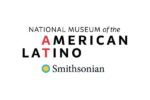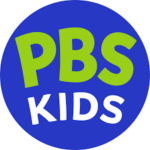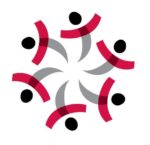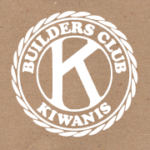Community-Based
- Community Collaborations/Partnerships (41)
- Community School Models (17)
- Community Schools (3)
- Community Service Learning (49)
- Family Engagement (65)
- Family Support Services (24)
This Dia de los Muertos Lesson Plan was created by Vanderbilt University’s Center for Latin American Studies. This includes a comprehensive learning plan with art projects that students can create to supplement their learning. This lesson plan was originally written for 5th grade, but can be adapted for grades 3-12.
Content Learning Target: Students will be able to understand the cultural significance of Día de los Muertos traditions.
Language Learning Target: Students will be able to define Día de los Muertos and explain how the holiday honors the deceased.
El Día de los Muertos (Day of the Dead) is a day of celebration, particularly for the people in Mexico and Central America, and for many Mexican Americans in the United States. It is a day to honor and commemorate the lives of the dearly departed and to welcome the return of their spirits.
Learn all about this cultural holiday with free resources from the Smithsonian National Museum of the American Latino, including a Day of the Dead learning kit, virtual exhibitions, music, stories, videos, and more.
The School of Kindness offers Lesson Plans and Activities that teach children about the importance of kindness, the science of kindness, and the impact it has on our physical and mental health. They are designed by teachers, for teachers, and support many of the aims and objectives of the new statutory PSHE curriculum for relationships and health education in primary schools.
This is a wonderful collection of 1,000+ free resources to help you teach kindness to your students. Choose from free printable coloring pages, kindness crafts, games, SEL worksheets, kindness math activities, and more.
Explore the history, arts, and culture of Filipino Americans in the United States. From veterans to Tony award winners, from labor movement leaders to gold medalists, we invite you to discover the rich and diverse stories, people, and history of Filipino American culture.
Holidays Around the World free curriculum downloads from The Curriculum Corner. The holidays are a great time for students to learn about cultures other than their own. This collection is designed to help your students learn about the traditions of others around the world during the holiday season.
Practicing gratitude — even in difficult times — is rewarding for the whole family. To talk with your child about being thankful and appreciating those who help us, read these ideas.
Resources include games, projects, craft activities, printable worksheets, articles, and more free gratitude resources for parents and kids.
Kid Power is an interactive video platform for students in grades Kindergarten through 8th. Kid Power combines philanthropy and fun with mental health, social-emotional learning (SEL), child rights, and equity and access for all students.
“Seven Positive Strategies for Managing Aggressive Behavior in Young Children” is an article published by Kidpower to help adults in effectively managing aggressive behavior in young children.
We at YouthPower believe that young people are at the heart of solutions to the world’s greatest challenges. That’s why we’re dedicated to strengthening systems in communities to achieve sustainable outcomes in health, education, and political and economic empowerment. By helping young people pursue their aspirations, we empower them to contribute to, and benefit from, the creation of more peaceful and prosperous communities.
Promoting positive youth development (PYD)
YouthPower promotes a shared understanding of positive youth development (PYD) whereby young people are empowered to reach their full potential. PYD transitions away from problem-focused responses to youth crises, to proactively building skills, fostering healthy relationships, transforming systems, and making youth an active partner in development efforts.
Advancing youth development
YouthPower improves the ability of youth-led and youth-serving institutions to design, implement, and assess the programs and policies that impact young people. Using lessons from our own research and knowledge sharing, we support the scale-up of sustainable youth programs, within and across multiple sectors. We do this to equip young people to actively engage in the development of their communities.
Creating a learning network
YouthPower’s Learning Network connects youth-serving initiatives, community-based organizations, international donors, academics, and government entities engaged in improving the knowledge, skills, practices, and partnerships around positive youth development. Together we are united in our aim to support the transition of young people into healthy, productive adults.
Providing evidence, evaluation, and technical guidance
YouthPower conducts research, evaluates innovative youth programs, and disseminates information to expand the knowledge base on what does – and does not – work in youth development. By compiling and sharing resources that take an evidence-based approach, we provide practitioners and researchers with the necessary tools to continuously improve the effectiveness of youth development practices.
There are more than 1,500 Builders Clubs in middle schools around the world. No two are alike. Each club is an independent entity-designed for its members, by its members. They work together to improve their schools and their communities. Their service also increases the visibility and enhances the reputation of both the club and the school or organization they represent. The program is designed to fit member and volunteer interests.
It’s student-led.
Builders Club is uniquely built on an important principle: Amazing things happen when the students take the lead.
It’s age-appropriate.
The program and its resources are designed specifically to help middle school students get the most of of the club experience.
Your needs matter.
Each club determines its own meeting schedule, service projects and other activities in order to fit the needs of advisors, members and sponsors.
You’re not alone.
Adult Kiwanis volunteers and staff at the regional and international levels are there to support your club’s success.
The Educational Fund to Stop Gun Violence (Ed Fund) is a 501(c)(3) affiliate organization of the Coalition to Stop Gun Violence. We use a public health and equity lens to identify and implement evidence-based policy solutions and programs to reduce gun violence in all its forms. We seek to make gun violence rare and abnormal. The Ed Fund makes communities safer by translating research into policy. We achieve this by engaging in policy development, advocacy, community and stakeholder engagement, and technical assistance.











